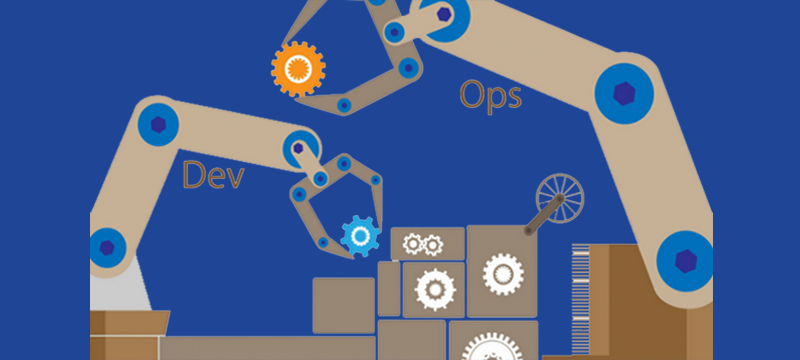When you hear about a DevOps team, you might think about cooperation between developers and system administrators who can do each other’s work. Sometimes there is the third team part — quality assurance (QA) engineers. Actually, this is quite far from reality. If you want to understand what the DevOps team actually is, keep reading.
The DevOps emerged as a set of practices for reducing the time between making changes in the system and changes in the production without quality losses. Simply put, DevOps was made for the time-saving and reliability of the software development process.
What about the team members?
What specialists are in the real DevOps team? You might be confused but DevOps team consists of… DevOps engineers. Developers and QA specialists have their own teams and working with DevOps methodology don’t change developer to the system administrator or vice versa. Where is the DevOps team placed in the process of software development? Actually, everywhere! In general, we can say that the DevOps team manages all the cloud infrastructure and software delivery processes. There are a few roles in the DevOps team:
- Product owner (PO). The person who acts as the customer representative for the team. PO understands how software should work, what cloud infrastructure or application deployment is needed. PO might be located on the customer’s site or on the DevOps team site and conveys the tasks to the team and the progress reports to the customer.
- Team Lead (TL). Usually Team Lead is the person with great experience in the field. TL can manage the team’s workflow, delegate responsibilities and assign roles in the team.
- Cloud Architect (CA). This is a person who has experience in cloud infrastructure building. Cloud Architect manages the infrastructure design and implementation, allocates the required resources, etc.
- Site Reliability Engineer (SRE). This is a specialist whose duty is to make software and its environment reliable and highly available.
- DevOps system administrator. The monitoring of cloud infrastructure is a big part of DevOps daily tasks. DevOps system administrator takes care of the monitoring and system support issues, gaining the experience and understanding required to move to SRE, CA and TL roles.
Implementing the DevOps philosophy and building the DevOps team is a complex process that includes a lot of steps. Thus, if you want to implement it in your company, the simplest way is to hire a DevOps outsourcing team. The in-house team has its own benefits but usually, it is a hard and long way of interviews and hiring. At the same time referring to a Managed Service Provider with a complete DevOps team can be much simpler, faster and cost-efficient.

Final thoughts: how to hire a DevOps team with minimal risks?
As we said above, the most efficient way is to hire a complete team at once. You can refer to the Managed Service Provider (MSP) with appropriate experience. MSP will get you a solid DevOps team ready to work. The common benefit of this approach is that you shouldn’t hire new people one by one, distribute roles in the team and wait while people adapt to each other and the project. The outsourcing team is ready to work “from the box”.
How to find a reliable MSP? This is a real problem sometimes. It is very important to entrust the project to a reliable team which will not make things worse. Thus, we recommend to search for reviews and ask previous MSP’s clients for feedback. You might also choose MSP from worldwide ratings like Clutch, for example. When you find a suitable MSP, discuss all the issues you’re worried about and make the strategy of future work.
The reliable DevOps team is a great investment for your business development.
